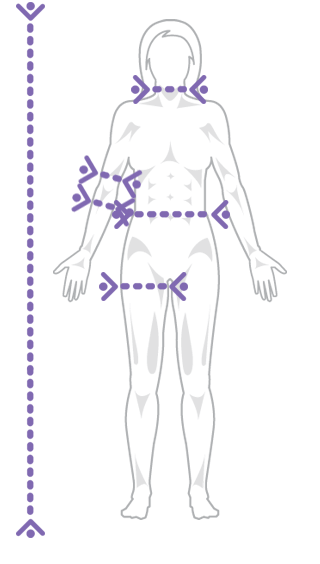Accurate assessment of body fat is crucial for maintaining optimal health and fitness. Various methods exist for measuring body fat, each with its strengths and limitations. One such method, known as the Marine Corps Wright Method, provides a practical and reliable way to estimate body fat percentage. This method, developed by Dr. Royce L. Wright, is widely utilized by the United States Marine Corps to assess the body composition of its personnel. In this article, we will delve into the details of the Marine Corps Wright Method, exploring its principles, advantages, and how it differs from other commonly used body fat measurement techniques.

Body Fat (Athletes)
> 32.0 Obese
25.0-32.0 Average
21.0-25.0 Fitness
14.0-21.0 Athletes
< 14.0 Essential fat
Understanding the Marine Corps Wright Body Fat Formula
The Marine Corps Wright Method is a tape-measure-based approach that relies on circumference measurements of the waist/abdomen and neck as primary indicators, along with other measurements for females. These measurements are then input into a formula to estimate body fat percentage. The method is considered practical, cost-effective, and suitable for field conditions, making it a preferred choice for military applications.
Advantages of the Marine Corps Wright Method
- Cost-Effective and Practical - The Marine Corps Wright Method is a simple and cost-effective way to estimate body fat percentage without the need for specialized equipment. It is particularly advantageous in field conditions where access to advanced measurement tools may be limited.
- Ease of Administration - The method is easy to administer, requiring minimal training. Unlike some other body fat measurement techniques, it doesn't necessitate highly skilled professionals to perform the assessment, making it accessible to a broader range of users.
- Applicability to Diverse Populations - While originally developed for military use, the Marine Corps Wright Method has been found to be applicable to diverse populations. Its reliance on basic measurements makes it suitable for a wide range of individuals, regardless of age, fitness level, or physical condition.
Fitmatic's final opinion - Compared to all our other Body Fat Formulas, the Marine Corp Wright formula is better suited for more active individuals and provides a better estimate for Body fat.
| Based On | Weight | Tape Measure | Skinfold |
| Measurement Complexity | Very Easy | Easy | Difficult |
| Accuracy/Precision | Low | Medium | High |
| Best Suited For | Non-Active Person | Active Enthusiast | Athlete |
Comparison with Other Methods
- Hydrostatic Weighing and DEXA - While hydrostatic weighing and dual-energy X-ray absorptiometry (DEXA) are considered gold standards for body fat measurement, they require specialized equipment and trained personnel. The Marine Corps Wright Method provides a more accessible alternative, especially in situations where high-tech equipment is not readily available.
- Skinfold Caliper Measurements - Skinfold caliper measurements are another common method for estimating body fat percentage. However, caliper measurements can be affected by individual variability and the skill of the person taking the measurements. The Marine Corps Wright Method, being tape-measure-based, eliminates some of these concerns.
Conclusion
The Marine Corps Wright Method stands out as a pragmatic and reliable approach to estimating body fat percentage. Its simplicity, cost-effectiveness, and applicability to diverse populations make it a valuable tool for individuals, fitness professionals, and military personnel alike. While it may not provide the precision of some advanced techniques, its practicality and ease of use contribute to its widespread adoption in various settings. As we continue to prioritize health and fitness, understanding different methods of body fat measurement allows us to make informed choices in pursuit of our wellness goals.
Measurement Help
Neck
How to measure- Smallest measurement just below the adams apple
- Tape measure should be sloping slightly downwards
Upper Arm Armpit
Body Position- Arms fully extended to your side
- Palms facing up
- Measure largest circumference
- Generally in the middle of your upper arm or slightly closer to your arm pit
Forearm
Body Position- hand out straight, hand open
- measured at largest point
- generally closer towards your elbow
Abdomen
Body Position- Same setup as waist measurement
- Specific location right at your naval (not above or below)
Thigh Top
Body Position- Standing on flat surface
- Generally at the top most part under the crease of your glutes
- generally the top of your middle gap
https://apps.dtic.mil/sti/citations/ADA143890
https://apps.dtic.mil/sti/citations/ADA506045


